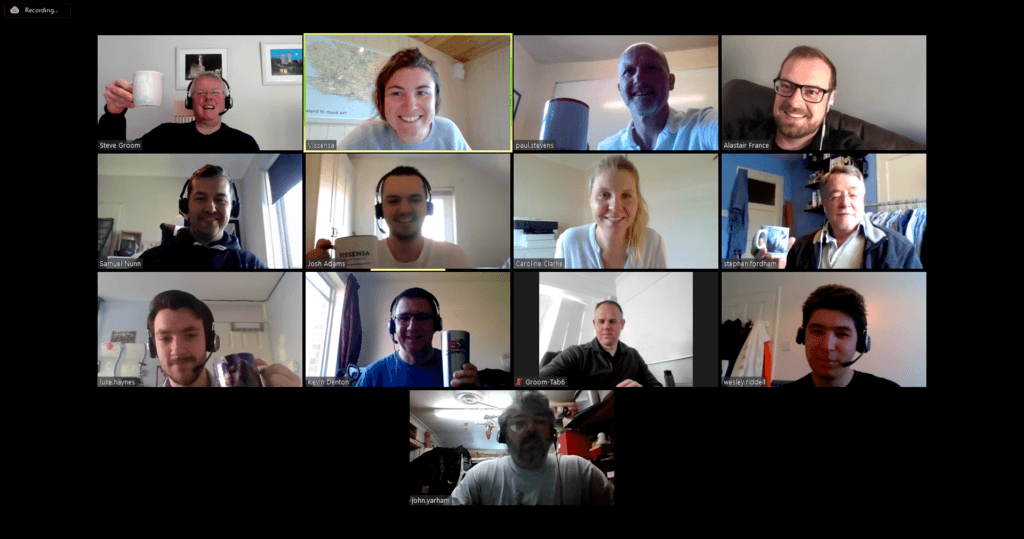Author: Steve Groom
These are unfamiliar times. We’ve been forced into social isolation and suddenly have all this spare time thrust upon us as we forsake going out, sports, and other leisure activities. I sat down last night (admittingly with a long gin and tonic) and started thinking, what will history make of “COVID19” or “corona virus”? How will we look back on this time, long after the immediate effects have been forgotten.
Clearly nobody living today will have ever experienced a global pandemic, and it is suitably paraphrased as ‘unprecedented’, but history has already shown that it is unlikely to be one isolated episode. Like Bird Flu and SARs before, unfortunately there will probably be another.
I do believe that this has been a wakeup call to governments and their appetite to spend on Public Health, so I feel confident that next time around, most countries will have the ability to mobilise their healthcare systems in a more controlled way.
What is also clear is that businesses will be able, and willing, to play a significant part in the fight against these global killers. Companies that have the know-how, the infrastructure and the capability to quickly switch production from their traditional products to manufacture essential safety and lifesaving equipment are a true inspiration. In fact, it’s not dissimilar to the efforts seen during the world wars!
A harrowing truth that came to light in the early stages of the pandemic was just how selfish we can be as humans. As shelves emptied of loo roll, pasta and tinned foods, nobody seemed to stop and think about how their behaviour would affect the next person. Despite the fact – we’re all in this together.
But maybe, just maybe, having been pushed into this isolated living and given time to reflect, we humans can rethink the way we approach our fellow citizens, turn a page and create the “new normal” that people talk about. We’ll spend more time at home with our families, implement a better work life balance, consider our carbon footprint and travel less. I for one am loving the opportunity to hear nature like I have never heard it before! Maybe the result is that we will hear each other as we never have before. Actively listening, and being willing to help.
Personally, I have been trying to help a number of my own connections on Linkedin to find new opportunities following their rapid employment termination. All good people, all without fault, but thrown casually away at the first sign of trouble.
An initiative we have started at Vissensa in an effort to boost team spirit, so that colleagues don’t feel too isolated at home, is two 10-minute video meetings a day, one in the morning and one in the afternoon, called the “coffee station catch up”. Everyone who fancies ‘popping in’ simply logs in for a chat over a cup of tea or coffee. It’s really nice to see each other’s faces, and we’ve met a few cats along the way too!

So what about Business?
All businesses will experience some change as a result of the crisis. For businesses that are actively looking out for their staff; keeping them on the books and finding new ways to keep them part of the team, the reward will be that their staff will view “work” in a different way. I hope the collaborative instinct of humans will kick in harder than ever, and real bonds can be forged within companies and with all employees. I also believe that flexible, home working will be widely accepted – allowing businesses to facilitate their employees in an environment that allows them to work to the best of their ability.
As an IT services company you would expect me to say that our transition from office-based to remote working was effortless. Technically – it was! Vissensa has been using all the latest tools to allow staff to operate from anywhere for quite a while.
One thing we didn’t take into consideration was the human element of such a shift, and I know from having a number of calls and being part of a few webinars over the last few weeks that we are not alone. However – the transition to homeworking settled very quickly for Vissensa, and I have my incredible team to thank for that. They are technically savvy, forward-thinking and have an amazing ability to stay focussed and motivated throughout – and I am very grateful for that.
We live in a digital world, where the tools and processes to strengthen remote working are readily available and, in some cases, already part of licenses that companies have. But, on the day of the lockdown, Vissensa helped numerous SME’s build VoIP systems and divert office telephone numbers so that they at least could still communicate with the outside world. Others that had no concept of collaboration other than transferring hundreds of important files they needed to work with from office servers and storage to laptops, USB’s and via a monsoon of emails.
If this isn’t stressful and unproductive, I don’t know what is.
The level of unpreparedness we saw a few weeks ago has exposed the worrying lack of any business continuity planning. The rush to buy laptops, licences for firewalls and even desks and chairs demonstrated how much of a working plan was missing in many businesses. Many didn’t get what they really needed, and most paid inflated prices. Should the management team and board not have had a plan in place to protect the operation of the business? You’d have thought so!
Worse – in the mad dash to remote working, many businesses have no doubt ignored the cyber security threats that have been produced in this mass evacuation. Cyber criminals are having a field day right now with millions of unprotected files and systems exposed through a weakened security posture. The hackers have already started disrupting Zoom and Teams conference calls, to no fault of the vendors of such products, as the responsibility to safeguard these platforms is that of the teams providing the facility.
What we can all be sure of, is that together we will emerge from this pandemic, and slowly rebuild the our businesses, our countries and our planet. There will be choices we have to make along the way that will affect how we are viewed by our staff, and how our behaviour during the crisis will be remembered by our customers.
Here is fantastic take away from a recent webinar I attended:
Make sure that as a management team you write down all the lessons that were learned during this crisis. Make a plan and put aside budget so that these issues can be fixed and next time, you’ll be ready.
© Vissensa Limited 2008 -2020











